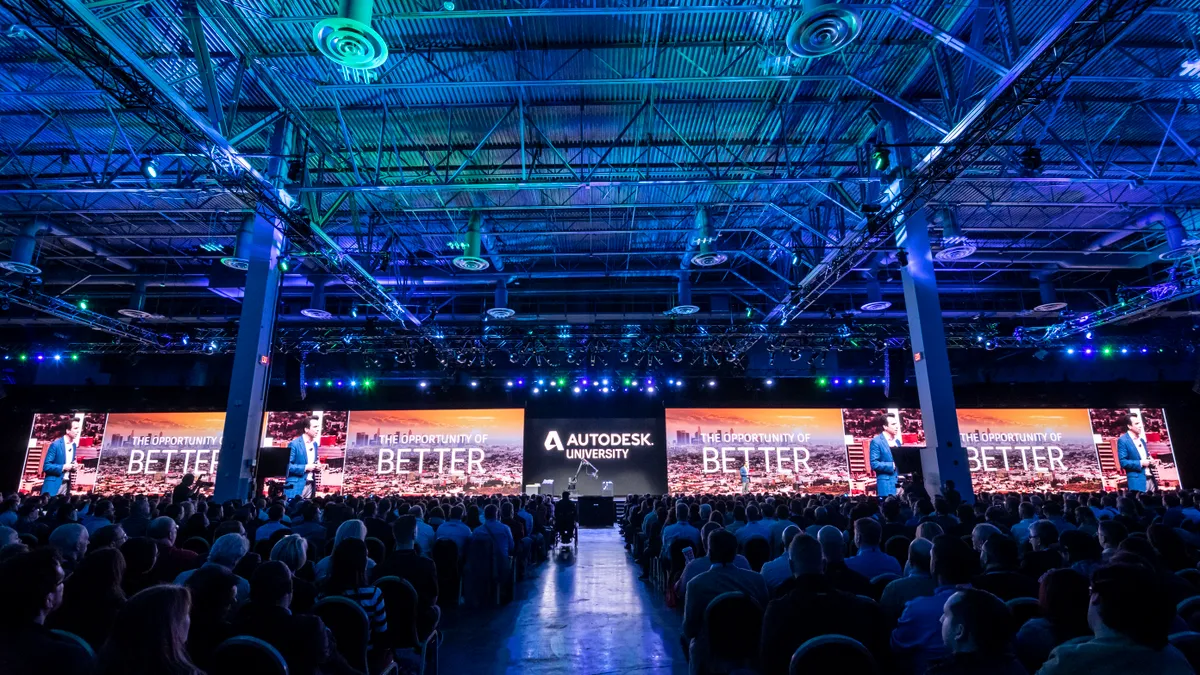In his keynote address Tuesday at Autodesk University in Las Vegas, Autodesk CEO Andrew Anagnost said that automation will change the way the industry makes things so that they “perform better, last longer and are more meaningful," according to an online live-streaming of the event.
This message comes one year after Anagnost, at the 2017 event, spoke about how the industry should view automation as an opportunity rather than a threat. This year, Anagnost continued that conversation by further defining just what opportunity lies with automation and how it will continue to be a boon to the ever-evolving construction industry.
By introducing new ecosystems in the workplace, automation first and foremost gives professionals the opportunity to create better and more meaningful work by taking away redundant and repetitive tasks. “It increases the importance of our expertise and creativity,” Anagnost said, citing several future and past examples.
He estimates 4 million people in the U.S. today have jobs that involve driving, but that as time progresses fewer people will work as actual drivers. Instead, the greater transportation ecosystem will have more opportunities in the form of mobility advisors, fleet operators and in-vehicle experience designers, all of whom will focus on the challenge of moving people more efficiently. “The ecosystem will only get better and with it, so will the jobs,” he said. Similarly, when ATMs were introduced in banks, it changed the role of a bank teller. Rather than making the position obsolete, it changed the nature of the work to one of solving problems and forming relationships.
Plenty of design challenges remain in construction, said Anagnost, so “don’t be concerned with jobs going away, but be concerned with how jobs are changing and what skills we’ll need to thrive in the future.” A decade ago, positions like BIM managers and drone operators didn’t exist in construction, yet today they are commonplace and vital to how many firms conduct business and how they add the most value.
“We all need to accept that the old is going away and the new has not yet fully emerged,” he said. “We need to let go of trying to plan our futures with total knowledge and embrace the notion of living in the space between.”
Mindsets, toolsets and skillsets all are evolving to accommodate automation’s increasing role, which Anagnost once again said can be embraced through adaptability, resiliency and community, all characteristics the company takes seriously. For example, Autodesk partnered this past year with four U.S. labor unions to help provide necessary training to evolve members’ skillsets. So far, they’ve worked with more than 4,000 members and have plans for more training.
And that’s what automation is all about, said Anagnost — making the whole experience better for everyone so that it results in better knowledge, insights and outcomes. “We will continue to deliver new forms of automation that will create new forms of value so you can deliver more projects with less negative impact on the world and realize the opportunity of ... a better world with better and more meaningful work.”













